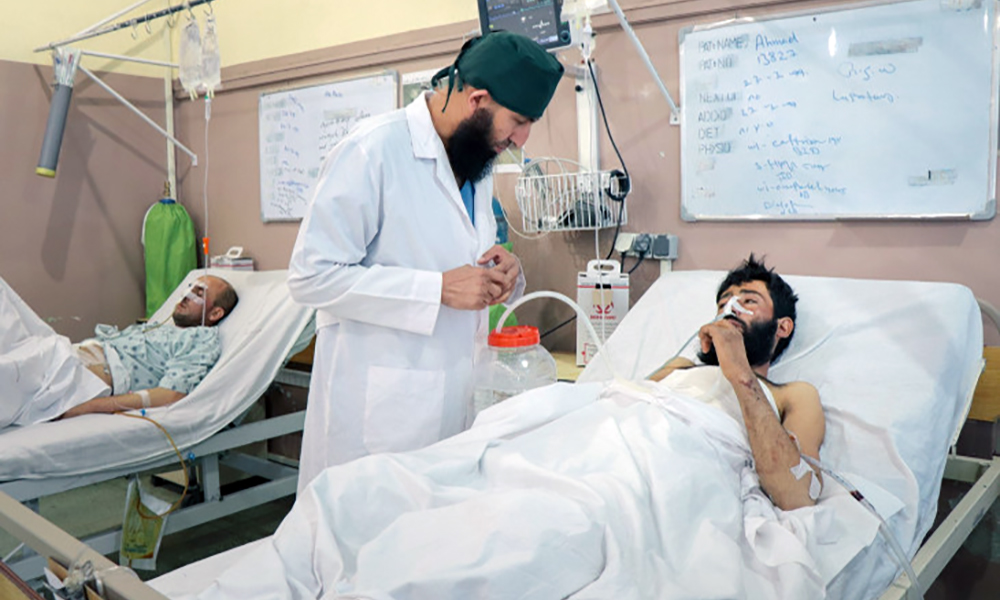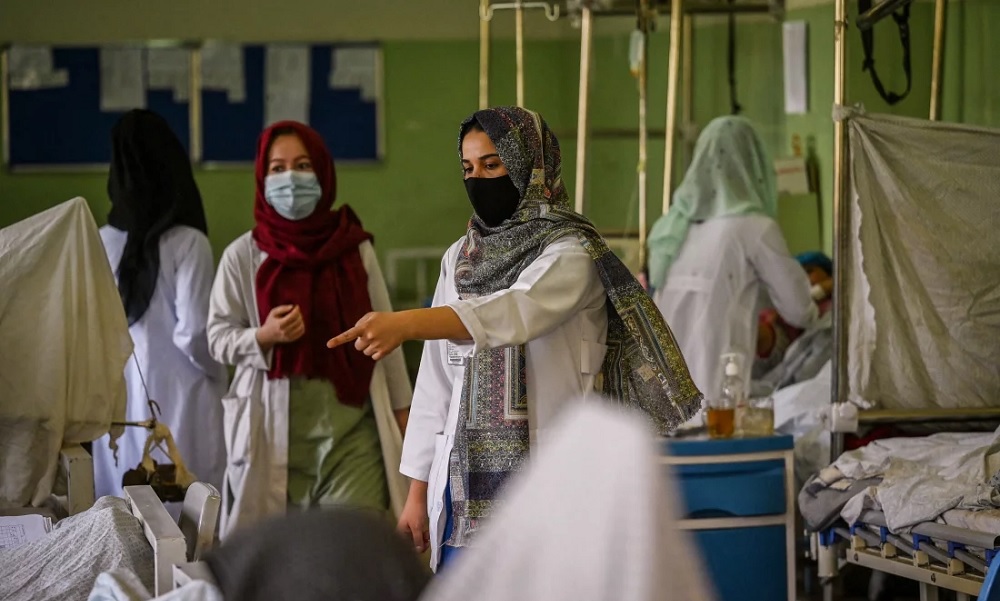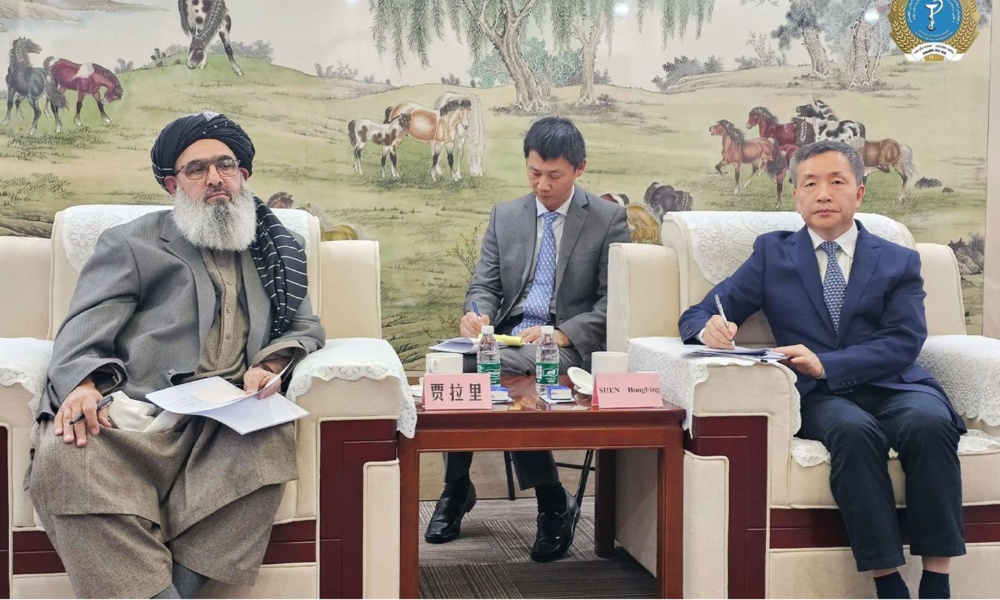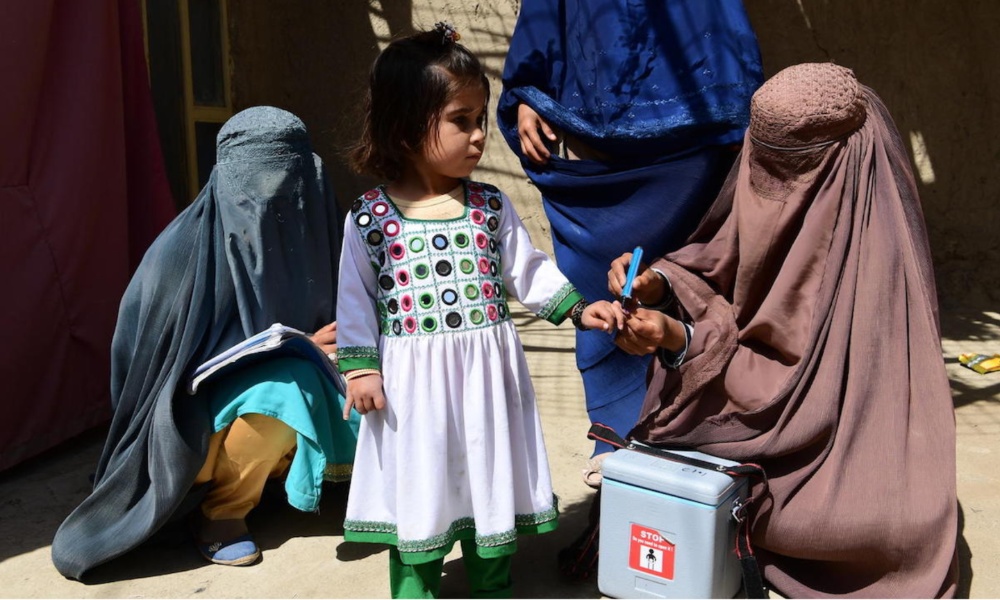Health
Health ministry says 2,000 people died from heart disease in past 18 months

The Ministry of Public Health said on Sunday at an event to mark World Heart Day that 2,000 people in the country died from heart disease in the 18 months.
According to officials, up to 6,000 people are diagnosed with heart disease every year.
Non-communicable cardiovascular disease is considered one of the ten deadly diseases in the world.
Ministry of Health officials say; from March 2022 to October 2023, more than 6,000 people have been diagnosed with heart problems and that 2,000 people died in this time.
"In the past year, 26,946 people with heart disease have come to us, and these patients have been provided with in- and out-patient services, and nearly 2,000 people with heart disease who were elderly or had high blood pressure and other diseases, died,” said Sharaf Zaman Amarkhel, the spokesperson for the Ministry of Health.
According to doctors, the main causes of cardiovascular diseases are smoking, alcohol, unhealthy diet, lack of exercise, and obesity. This can lead to high cholesterol, and high blood pressure, officials said.
"Unfortunately, in our society, people use a lot of oil and salt, and we still don't exercise alongside it,” said Haider Khan Haider, Director General of Disease Prevention and Control of the Ministry of Public Health.
However, officials of the Association of Cardiovascular Doctors say that the institution performs up to four heart operations daily.
"Keeping the heart healthy is not a one-day job, but requires a long-term commitment. Our message is clear; have a balanced diet, be active and take care, and let's prefer drinking water over other soft and energy drinks,” said Abdulwahid Siddiqi, the head of the Afghan Cardiovascular Doctors Association.
Cardiovascular disease affects millions of people around the world and an estimated 20 million people die from it annually.
Health
Excluding Afghan women from medical institutes threatens the future of health care in the country: MSF

The Islamic Emirate of Afghanistan’s (IEA) decision to bar women from studying in medical institutes will have far-reaching consequences for women’s health in the country, Médecins Sans Frontières (Doctors Without Borders) said on Friday.
This is another stage in the removal of women from public and professional life in Afghanistan. Already, there is an insufficient number of female health care workers in the country, impacting the availability of health care, especially given the separation of hospital wards by gender. New constraints will further restrict access to quality health care and pose serious dangers to its availability in the future, MSF said in a statement.
“There is no health care system without educated female health practitioners,” said Mickael Le Paih, MSF’s country representative in Afghanistan. “At MSF, more than 50 percent of our medical staff are women. The decision to bar women from studying at medical institutes will further exclude them from both education and the impartial provision of health care.”
The medical needs in Afghanistan are huge, and more female Afghan medical staff need to be trained to address them. For this to happen, women need to have access to education. Education restrictions for women and girls put in place in 2024, 2022, and 2021 considerably reduce the number of female medical staff in the future, MSF said.
“If no girls can attend secondary school, and no women can attend university or medical institutes, where will the female health professionals of the future come from and who will attend to Afghan women when they are at their most vulnerable?” said Le Paih. “For essential services to be available to all genders, they must be delivered by all genders.”
Recently, there have been reports that the leader of the Islamic Emirate has ordered the closure of medical institutes to women. The Islamic Emirate has not yet officially commented on this matter.
Health
Afghanistan’s health minister visits disease control center during China visit
Jalali, in China for the World Conference on Traditional Medicine 2024, said that traditional medicine in Afghanistan needs to be regulated and integrated into modern healthcare practices

Afghanistan’s Acting Minister of Public Health has held in depth discussions on managing diseases such as malaria, tuberculosis, and polio with China’s Deputy Director for Disease Control and Prevention, Shen Hongbing.
On an official visit to China, Mawlawi Noor Jalal Jalali also discussed other issues, with Shen and other officials, such as monitoring of diseases, disaster management processes and capacity building for Afghan healthcare workers.
Jalali, who was in China for the World Conference on Traditional Medicine 2024, also toured China’s Disease Control and Prevention Center (CDC) and its National Influenza Center.
The conference, which was held on Tuesday and Wednesday in Beijing, was jointly held by the World Health Organization (WHO) and Chinese sponsors, including China’s National Health Commission.
The opening ceremony of the two-day event was attended by health officials of governments and international organizations, experts and scholars, and deputies from medical institutions.
WHO Director-General Tedros Adhanom Ghebreyesus gave a speech via video.
Addressing delegates at the conference, the ministry cited Jalali as having said that traditional medicine in Afghanistan needs to be regulated and integrated into modern healthcare practices.
He also advocated for strengthened bilateral cooperation between China and Afghanistan to enhance capacity building, experience sharing, and joint research in the sector.
Afghanistan’s health ministry has meanwhile established a Traditional Medicine Department which is currently tasked with formulating policies and guidelines to regulate and improve this sector.
Health
WHO reports 283% increase in polio cases in Afghanistan this year
Since the last WHO Emergency Committee meeting, in July this year, 51 new wild polio cases were reported – 17 from Afghanistan and 34 from Pakistan – bringing the total to 62 in 2024

The World Health Organization (WHO) on Tuesday reported at an Emergency Committee meeting on the spread of polio that Afghanistan has recorded a 283% increase in polio cases in in the country this year.
According to a statement issued by WHO, since the last Emergency Committee meeting, in July this year, 51 new wild polio cases were reported – 17 from Afghanistan and 34 from Pakistan – bringing the total to 62 in 2024.
This represents a 283% increase in paralytic cases in Afghanistan and a 550% increase in Pakistan compared to all of 2023, WHO reported.
WHO stated there has been an upward trend of wild polio detection in Pakistan since mid-2023, mostly from Khyber Pakhtunkhwa, Sindh and Balochistan provinces.
In Afghanistan, there has been an increase mainly in the south since late last year 2023.
The emergency meeting to address the surge in polio cases was held on November 6, 2024, and chaired by the WHO Director-General. The statement however, was only released on Tuesday, December 3.
WHO noted that both countries had implemented two nationwide vaccination campaign rounds in 2024. Afghanistan has however implemented an additional four and Pakistan an additional six sub-national vaccination rounds.
“After very encouraging progress towards implementing house-to-house campaigns in all of Afghanistan during the first half of 2024, Afghanistan programme has recently gone back to implementing site-to-site modality campaigns.
“The Committee was concerned about this recent development, since site-to-site campaigns are not able to reach all the children in Afghanistan especially those of younger age and girls, which may lead to a further upsurge of WPV1 (wild polio) with geographical spread in Afghanistan and beyond,” the statement read.
WHO stated that in addition to seasonal movement patterns within and between the two endemic countries, the continued return of undocumented migrants from Pakistan to Afghanistan was compounding the challenges.
“The scale of the displacement increases the risk of cross-border poliovirus spread as well as spread within both the countries.
“This risk is being managed and mitigated in both countries through vaccination at border crossing points and the updating of micro-plans in the districts of origin and return. The programme continues to closely coordinate with IOM and UNHCR,” the statement read.
The organization emphasized the need for more comprehensive vaccination efforts to prevent further spread of the disease and for the international community to step up efforts to help the two countries eliminate the virus.
-

 Latest News4 days ago
Latest News4 days agoAfghanistan seals T20I series victory over Zimbabwe
-

 World4 days ago
World4 days agoSyrian clerics in former Assad stronghold call for national unity, democracy
-

 Latest News4 days ago
Latest News4 days agoU.S. sentences Afghan man to 30 years in prison for narco-terrorism and witness tampering
-

 International Sports3 days ago
International Sports3 days agoMessi vs Ronaldo: A look at their market values over the years
-

 Latest News4 days ago
Latest News4 days agoInvestment in Afghanistan’s pharmaceutical sector reaches $300 million: Union
-

 Latest News4 days ago
Latest News4 days agoChinese, Tajik officials discuss Afghanistan
-

 Sport4 days ago
Sport4 days agoAfghanistan’s Gulbaddin Naib fined 15% of match fee for dissent
-

 Regional3 days ago
Regional3 days agoHezbollah chief says group lost its supply route through Syria
























